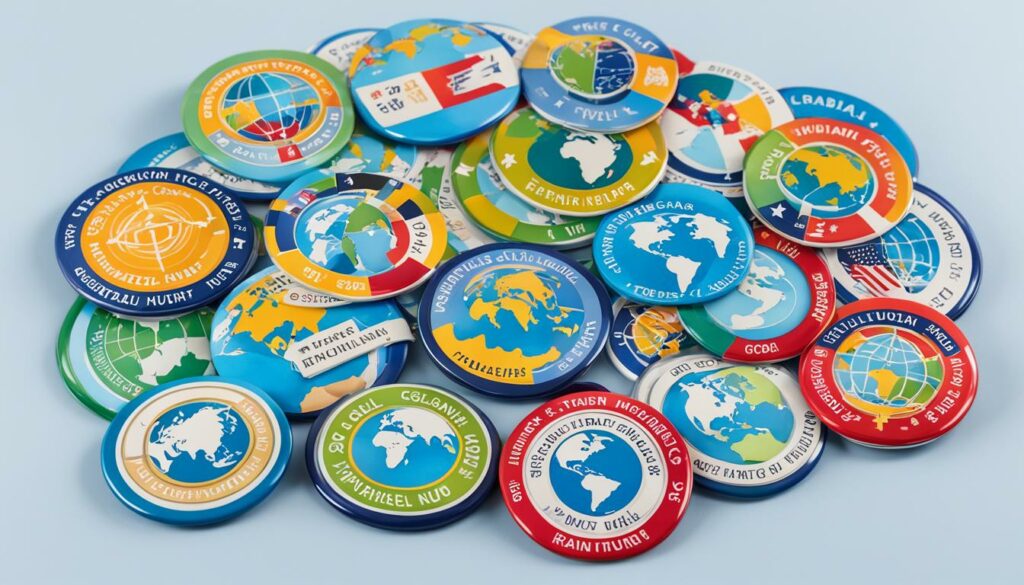Are you a nurse looking to explore new horizons, experience different healthcare settings, and make a positive impact wherever you go? Then become a travel nurse might be the perfect career path for you. Travel nursing offers exciting opportunities to work in various locations, gain diverse experiences, and enjoy a flexible lifestyle. However, the journey to become a travel nurse involves specific requirements and steps that you need to navigate. This step-by-step guide will outline the essential information and considerations to help you embark on your travel nursing career.
Key Takeaways
- Travel nursing requires flexibility and adaptability, as you may work in different facilities, perform various roles, and relocate frequently.
- Obtaining an RN license is a crucial requirement for become a travel nurse, and most agencies prefer candidates with at least two years of clinical experience.
- Consider pursuing a Bachelor of Science in Nursing (BSN) degree to enhance your chances of being hired by agencies and accessing more job opportunities.
- Maintain essential certifications like Basic Life Support (BLS) and Advanced Cardiovascular Life Support (ACLS), and consider pursuing specialized certifications to stand out in the field.
- Travel nursing offers competitive salaries, with travel nurses making an average of $100,000 per year, providing fruitful career prospects and flexible work arrangements.
What Is a Travel Nurse?
A travel nurse is a nurse who works for a nurse staffing agency rather than working directly for a hospital, doctor’s office, or other healthcare facility. Depending on your preferences and the available jobs, you might work locally, nationally, or even internationally. A travel nurse’s responsibilities and role can vary from one job to the next. Travel nurses can be generalists or specialists. With the proper certifications and experience, you might be working in a neonatal unit on one job and filling in at an understaffed emergency department on the next. It’s up to you, your recruiter, and what your life, skills, and professional interests allow.
Requirements for Travel Nursing
Becoming a travel nurse requires following the same baseline steps as any other nursing career path. To embark on this exciting journey, you must first become a registered nurse (RN). Here are the essential requirements and steps to becoming a travel nurse:
- Earn your nursing degree: Complete a nurse training program, whether it’s an Associate Degree in Nursing (ADN) or a Bachelor of Science in Nursing (BSN) program.
- Pass the NCLEX-RN exam: Successfully pass the National Council Licensure Examination for Registered Nurses (NCLEX-RN).
- Obtain licensure: Apply for licensure in the state where you intend to practice as an RN. If you plan to travel across state lines, you may also need to obtain licensure in your destination state or country.
- Gain clinical experience: Most nurse staffing agencies require a minimum amount of clinical experience before considering you as a travel nurse. Typically, at least two years of experience as an RN is necessary.
Moreover, flexibility is key in the world of travel nursing. You will be constantly changing environments, so you must possess excellent adaptability skills. Once you become a travel nurse, effective communication is vital to integrate seamlessly into new work environments and quickly become a valuable team member. Strong communication skills will help you provide excellent patient care and work collaboratively with different healthcare teams.
“The baseline steps to become a travel nurse are the same as those for other nursing career paths. Travel nurses must be registered nurses (RNs)…”
Education and Licensing Requirements for Travel Nurses
While there isn’t one specific degree required to become a travel nurse, having either an Associate Degree in Nursing (ADN) or a Bachelor of Science in Nursing (BSN) is typically necessary. However, many nurse staffing agencies prefer candidates with a four-year BSN degree, as it can enhance your chances of getting hired and finding the travel nursing jobs you desire.
All travel nurses must be licensed in the state where they practice, just like any registered nurse (RN). However, there is a convenient option called the Nurse Licensure Compact (NLC) that allows licensed RNs to work legally in multiple participating states without obtaining additional licenses. Currently, 39 states are part of the NLC or are in the process of implementing it. This compact simplifies the licensing process for travel nurses who want to work in multiple states.
If your desired destination is not within the NLC, you will need to apply for a state-specific license before starting the travel nursing job. Some states may offer temporary licenses that help streamline the process of meeting the travel nurse license requirements. It’s essential to check the specific licensing regulations of the state where you plan to travel and work.
To summarize the education and licensing requirements to become a travel nurses:
| Requirement | Description |
|---|---|
| Degree | Can have an ADN or BSN, but BSN may enhance job opportunities |
| Licensing | Must be licensed in the state of practice; NLC allows licensure in multiple participating states |
Obtaining the appropriate education and licenses will set you on the path to becoming a travel nurse, and provide you with the necessary credentials to excel in this rewarding career.
Certifications and Specializations for Travel Nurses
Travel nurses play a crucial role in providing healthcare services across different locations. To excel in this dynamic field, it’s important to obtain the necessary certifications and specializations. While travel nurses need to maintain commonly required certifications like Basic Life Support (BLS) and Advanced Cardiovascular Life Support (ACLS), there are also other certifications that can enhance your career prospects and make you more in-demand.
One such certification is the Certified Emergency Nurse (CEN) which demonstrates your expertise in emergency care. With this certification, you’ll have an edge in qualifying for jobs through your agency, as many healthcare facilities prioritize CEN-certified nurses in emergency departments. Another notable certification is the Certified Critical Care Nurse (CCRN) which specializes in critical care nursing. This certification is highly valued and can open doors to exciting opportunities in intensive care units (ICU) and other critical care settings.
In addition to these specialized certifications, it’s beneficial to have certifications in areas such as neonatal nursing, pediatric care, or trauma nursing. These certifications not only increase your chances of getting hired but may also result in higher pay rates. By demonstrating your expertise and dedication to continuous learning, you showcase yourself as a valuable asset to any healthcare team.
Obtaining these certifications can be a competitive advantage and set you apart from other travel nurses. It’s essential to stay updated with the latest developments in your field and invest in professional development opportunities to expand your skill set and knowledge.
Benefits of Certifications and Specializations
Having travel nurse certifications and specializations offers several benefits:
- Increased job opportunities: Employers often prioritize certified travel nurses for specialized roles.
- Enhanced marketability: Certifications make your resume more attractive to agencies and healthcare facilities.
- Higher pay rates: Certifications in high-demand specialties can lead to better compensation.
- Professional growth: Continuous learning and acquiring new skills contribute to your professional development.
The Value of Continuous Learning
Continuous learning is essential in the ever-evolving field of nursing. By staying updated with the latest advancements, you can provide the best possible care to your patients. Regularly pursuing certifications and specializations demonstrates your commitment to excellence and ongoing professional development.
When you become a travel nurse, you have the opportunity to work in different healthcare settings and gain exposure to various patient populations and medical conditions. Embracing the challenge of expanding your knowledge and skills through certifications can open doors to exciting career opportunities and ensure you remain competitive in the travel nursing industry.

How to Become a Travel Nurse – Wrap Up
When it comes to travel nurse salaries, there is a wide range of possibilities. As a travel nurse, you have the opportunity to work in different states and take on varying nursing responsibilities, which can affect your earning potential. On average, travel nurses can earn around $100,000 per year, which is higher than the average salary for registered nurses as a whole, which stands at about $82,750 in 2022.
Not only is the salary attractive, but travel nursing also provides excellent career prospects. The demand for travel nurses is expected to continue to grow due to the aging population and the retirement of many experienced nurses. As a result, skilled and flexible travel nurses will have ample job opportunities, even in areas with low demand for nurses. Being dispatched to locations facing staffing shortages or emergencies further showcases the importance and need for travel nurses in the healthcare workforce.
Choosing a career in travel nursing comes with numerous benefits. Besides the generous salary, travel nursing allows you to experience new places, meet different people, and enhance your professional skills. It provides you with the opportunity to broaden your clinical knowledge and gain expertise in various specialties. Additionally, travel nursing offers the chance to network, collaborate with different healthcare teams, and expand your professional connections.
Learn More About Travel Nurse Basics
How do I become a travel nurse?
To become a travel nurse, you must first complete a nurse training program and pass the NCLEX-RN exam to become a registered nurse (RN). Typically, travel nursing agencies require a minimum amount of clinical experience, so it’s recommended to gain at least two years of experience as an RN before applying for travel nursing positions. You’ll also need to be flexible and adaptable to changing environments.
What is a travel nurse?
A travel nurse is a nurse who works for a nurse staffing agency rather than directly for a healthcare facility. Travel nurses have the opportunity to work locally, nationally, or even internationally, depending on their preferences and the available jobs. Their responsibilities and roles can vary from one job to the next, and they can work as generalists or specialists in different healthcare settings.
What are the requirements for travel nursing?
The requirements for travel nursing are similar to those for other nursing career paths. You need to be a registered nurse (RN) and have a minimum amount of clinical experience. Additionally, when you become travel nurse, you’ll need to have exceptional communication skills and the ability to adapt quickly to different work environments.
What education and licensing do I need to become a travel nurse?
To become a travel nurse, you can have an Associate Degree in Nursing (ADN) or a Bachelor of Science in Nursing (BSN). Most nurse staffing agencies prefer candidates with a four-year degree, so having a BSN can make it easier to get hired and find the jobs you want. You’ll also need to be licensed as an RN in the state where you practice, or you can take advantage of the Nurse Licensure Compact (NLC) to practice in multiple participating states.
What certifications and specializations do travel nurses need?
Travel nurses are required to maintain common certifications like Basic Life Support (BLS) and Advanced Cardiovascular Life Support (ACLS). While there are no specific required travel nurse certifications, having in-demand certifications like Certified Emergency Nurse (CEN) or Certified Critical Care Nurse (CCRN) can increase your job opportunities. Specializing in areas like ICU or neonatal nursing can also boost your chances of getting hired and potentially result in higher pay rates.
What salary can I expect as a travel nurse?
Travel nurse salaries can vary depending on factors like location and job duties. On average, once you become a travel nurse you can make around 0,000 per year, which is higher than the average salary for RNs as a whole. Due to the high demand for travel nurses in areas with nursing shortages or after natural disasters, skilled and flexible travel nurses may have opportunities for work even if there isn’t high demand in their local area.
What are the benefits of a travel nursing career?
Travel nursing offers various benefits, including higher salaries, the opportunity to work in different locations and healthcare settings, and the ability to gain diverse clinical experience. It can also provide the chance to explore new places, meet new people, and enhance your skills as a nurse. Additionally, the demand for travel nurses is expected to continue to grow due to the aging population and the retirement of experienced nurses.




